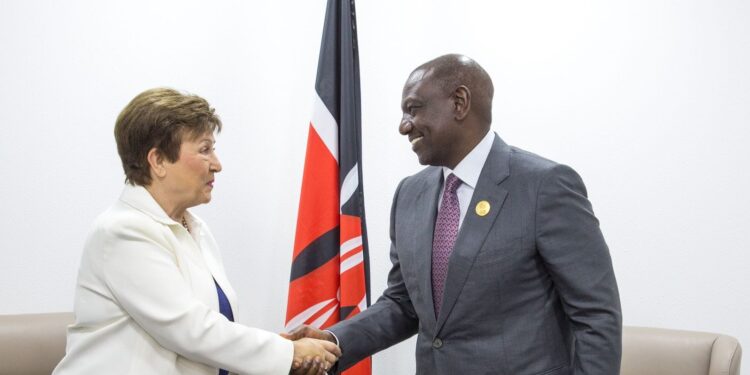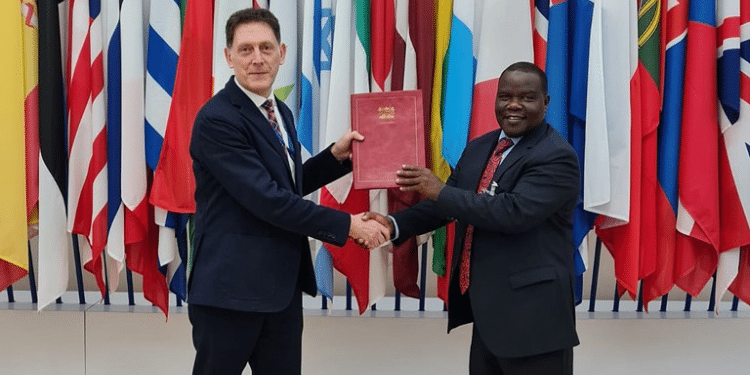Kenya has strengthened its commitment towards the global fight against tax avoidance by depositing its instruments of ratification for the Multilateral Convention to implement Tax Treaty related measures to Prevent Base Erosion and Profit Shifting (BEPS) on January 8, 2025.
The Organization for Economic Cooperation and Development (OECD) center for tax policy and administration in a statement said that the depositing underlines Kenya’s strong commitment to prevent the abuse of tax treaties and BEPS Convention by multinational enterprises.
OECD’s Base Erosion and Profit Shifting initiative refers to tax planning strategies that exploit gaps and mismatches in tax rules to artificially shift profits to low or no-tax locations where there is little or no economic activity, resulting in little or no overall corporate tax being paid.
It seeks to close gaps in international taxation for companies that allegedly avoid taxation or reduce tax burden in their home country by engaging in tax inversions (moving operations) or by migrating intangibles to lower tax jurisdictions.

According to OECD, conservative estimates in January 2017 indicate annual losses of anywhere from 4 to 10% of global corporate income tax revenues amounting to $100-240 billion annually.
The organization has issued 15 Action Items to address the main areas where they feel companies have been most aggressively accomplishing this shifting of profit — addressing the digital economy, treaty abuse, transfer pricing documentation, and more.
BEPS Action Item 13, in particular, aims to transform transfer pricing documentation, forcing multinational corporations to reconsider how transfer pricing details are reported to local tax authorities as well as worldwide with country-by-country reporting.
Kenya deposits its instrument of ratification of the Multilateral BEPS Convention
For Kenya, the BEPS Convention will enter into force on 1 May 2025 for Kenya after the Registrar of Treaties in the Ministry of Foreign and Diaspora Affairs (MFA) Nicholas Kilatya Mutuku deposited the instruments to Acting Deputy Director, OECD Centre for Tax Policy and Administration.
Also Read: Govt Introduces New Tax Laws on Pensions & Retirement Benefits
As of today, 88 jurisdictions have either ratified, accepted, or approved the BEPS Convention resulting in the modification of over 1, 600 treaties.
Around 350 additional treaties will be modified once the BEPS Convention will have been ratified by all signatories.
The BEPS Convention, negotiated by more than 100 countries and jurisdictions under a mandate from the G20 Finance Ministers and Central Bank Governors, is one of the most prominent results of the OECD/G20 BEPS Project.
It is the world’s leading instrument for updating bilateral tax treaties and reducing opportunities for tax avoidance by multinational enterprises.
Measures to reduce global tax avoidance
Measures included in the BEPS Convention address treaty abuse, strategies to avoid the creation of a “permanent establishment”, and hybrid mismatch arrangements.
Also Read: KRA Issues Update on Revised Calculation of Monthly Taxes
The Convention also enhances the tax treaty dispute resolution mechanism, especially through the addition of an optional provision on mandatory binding arbitration, which has been taken up by 33 jurisdictions.
As of 1 January 2019, the first modifications to some Covered Tax Agreements became effective.
The BEPS MLI provisions could take effect at different moments for each Covered Tax Agreement.
It takes effect following a period in the provisions once each contracting jurisdictions to a Covered Tax Agreement deposit their instrument of ratification, acceptance or approval.
Article 35 sets out the general rules on the entry into effect and divides modifications into two categories based on the type of taxation to which they apply (provisions of the BEPS MLI with respect to taxes withheld at source on amounts paid or credited to non-residents and provisions of the BEPS MLI with respect to all other taxes levied).
The OECD Secretariat developed a toolkit on the application of the BEPS MLI (which includes a Matching Database making projections of the BEPS MLI effects).
Follow our WhatsApp Channel and join our WhatsApp Group for real-time news updates.








































































